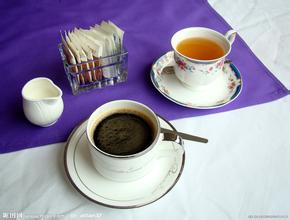Introduction to the unique and mellow coffee flavor and taste characteristics of Ethiopia's Xida Motede Manor.
Monnique I became king in 975 BC. In the 8th century BC, the Kingdom of Nubia was established.
From the 1st century to 976 AD, the Ethiopian Empire was established in Aksum in the north, also known as the Kingdom of Aksum. Christianity was introduced into Ethiopia in the 4th and 5th centuries. From the 12th century to 1270, the Zagvi dynasty was established.
In 1270, the Abyssinian Empire was established. [3]
Early invasion of Western colonialism
Portugal and the Ottoman Empire invaded in the 16th century. British troops invaded Ethiopia in 1867 and the Sudanese Mahdi Army invaded in 1887.
In 1889, Menelik II proclaimed himself emperor, unified the country, established Addis Ababa as its capital, and laid the foundation for modern Ethiopia. In 1890, Italy invaded Ethiopia to exclude British influence and declared Ethiopia a "protectorate". In 1896, Monnique II defeated the Italian army at Adua and Italy was forced to recognize Ethiopia's independence. [1]
During the reign of Emperor Selassie
Haile Selassie was made regent in 1916 and king in 1928. He was crowned Emperor Haile Selassie I on 2 November 1930. In 1936, Italy invaded again, occupied Addis Ababa, conquered Ethiopia, and Selassie went into exile in London, England. Italy was defeated by the Allies in 1941, and Selassie I was restored on May 5 of the same year. He stepped down after a coup in 1974. [3]
under the military government
In September 1974, a group of young officers formed the "Military, Police and Local Army Coordination Committee"(DERGUE, English SHADOW, later referred to the military government and Mengistu regime) to launch a military coup, overthrow Haile Selassie government, announce the end of the monarchy, and establish a "provisional military government." In November, the term "Interim Military Government" was changed to "Interim Military Administrative Council." In December, the "Interim Military Administrative Council" declared Ethiopia a "socialist state" and nationalized land, financial institutions and industry.
Sunlight Sidamo tastes close to floral, but slightly earthy. Wash it with nutty fruit aromas, with a slight cocoa aroma, but the two have in common a smooth taste and viscosity, pleasant acidity and aroma. Light or medium roasts are suitable for single serve, medium or deep roasts are suitable for blended coffee and a good Espresso base.
Sitama treated by washing is light green, small beans, oval growth, full fruit, good average quality, mellow smell, a drop of mouth, endless aftertaste, with wild beauty. It is elegant and playful, mild and pleasant on the palate, forming a strong taste impact with the bright lemon acid later, unique and mellow, sweet and pleasant, slowly rising finish contains unique sweet Sidamo coffee green beans slightly gray, some places thick and some places fine, soft and strong acidity, alcohol and light, sweet and spicy, is one of the courtyard coffees of the southern highlands of Ethiopia. It differs from African coffee in that Sidamo has a clear acidity, a smooth taste and a delicate floral aroma.
Sidamo coffee is very diverse. Different soil types, microclimate and numerous native coffee species, high mountains, highlands, plateaus, valleys and plains, diverse terrain, and the geology of the area is rich in nutrients, well drained volcanic soil, soil depth of nearly two meters, the surface soil is dark brown or brown. Its greatest advantage is that soil fertility is maintained through the recycling of organic matter, using withered leaves from surrounding trees or plant roots as fertilizer. Therefore, the coffee produced in the town has obvious differences and characteristics. From 2010 to 2012, it won high scores of CR92~94 from the authoritative coffee evaluation website in the United States. This shows that the production of raw beans extraordinary

Important Notice :
前街咖啡 FrontStreet Coffee has moved to new addredd:
FrontStreet Coffee Address: 315,Donghua East Road,GuangZhou
Tel:020 38364473
- Prev

Introduction to the unique and mellow coffee flavor and taste characteristics of Ethiopia's Xida Motede Manor.
Monlinique I reigned in 975 BC. The Kingdom of Nubia was established in the 8th century BC. From the 1st century to 976 AD, the Ethiopian Empire, also known as the Kingdom of Aksum, was established in Aksum in the north. Christianity was introduced into Ethiopia in the 4th and 5th century. From the 12th century to 1270, the Zagvi dynasty was established. In 1270, the Abyssinian Empire was established. [3] Western colonialism
- Next

Introduction to fine coffee with mild acidity and taste characteristics of Costa Rican goddess manor coffee
The current Constitution entered into force on November 7, 1949. The Constitution stipulates that the state implements a republic with the separation of legislative, judicial and executive powers. The General Audit Office and the Supreme Electoral Court are independent bodies. The President shall be the head of State or Government and may stand for re-election every other term; the President and Vice President shall be directly elected for a term of four years; when the President is absent, the first Vice President and the second Vice President shall negotiate in turn.
Related
- Does Rose Summer choose Blue, Green or Red? Detailed explanation of Rose Summer Coffee plots and Classification in Panamanian Jade Manor
- What is the difference between the origin, producing area, processing plant, cooperative and manor of coffee beans?
- How fine does the espresso powder fit? how to grind the espresso?
- Sca coffee roasting degree color card coffee roasting degree 8 roasting color values what do you mean?
- The practice of lattes: how to make lattes at home
- Introduction to Indonesian Fine Coffee beans-- Java Coffee producing area of Indonesian Arabica Coffee
- How much will the flavor of light and medium roasted rose summer be expressed? What baking level is rose summer suitable for?
- Introduction to the characteristics of washing, sun-drying or wet-planing coffee commonly used in Mantenin, Indonesia
- Price characteristics of Arabica Coffee Bean Starbucks introduction to Manning Coffee Bean Taste producing area Variety Manor
- What is the authentic Yega flavor? What are the flavor characteristics of the really excellent Yejasuffi coffee beans?

